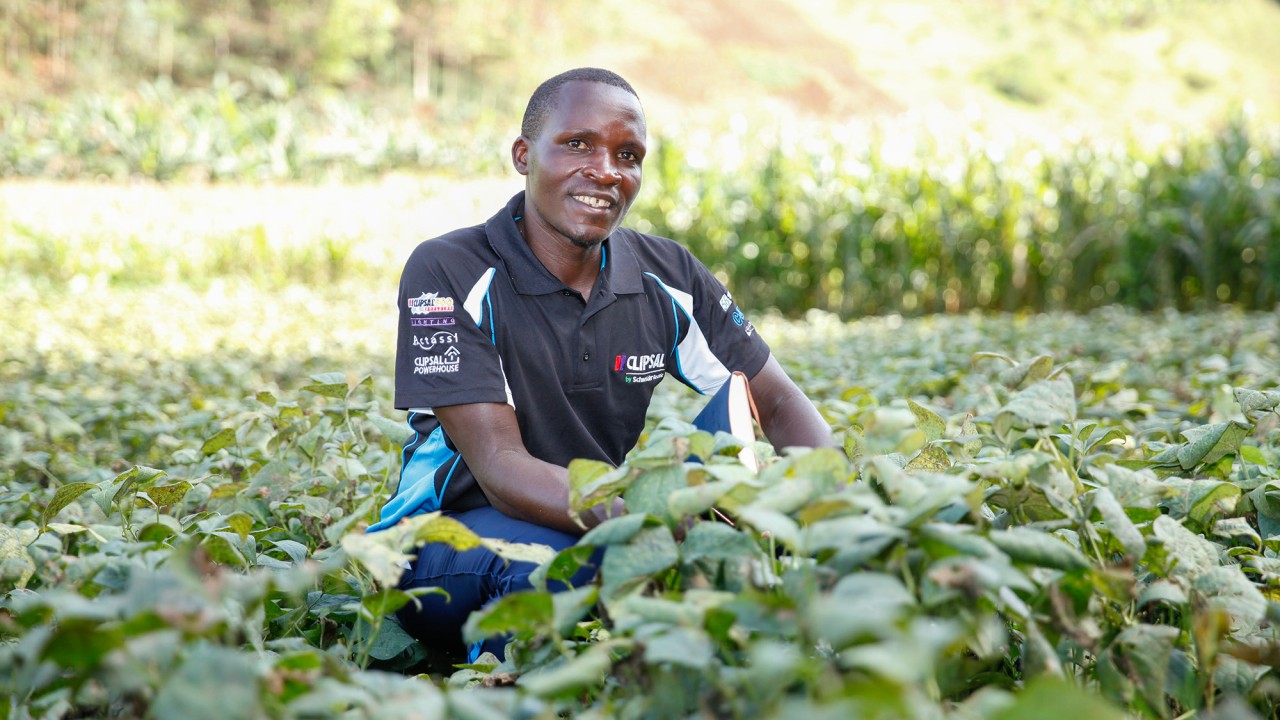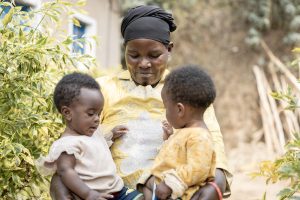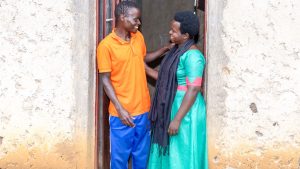Nsabimana Jean Marie Vianney was like many in his community – a subsistence farmer who didn’t see agriculture as a viable profession. Following traditional beliefs that farming couldn’t be a primary income source, he approached it casually, mixing crops haphazardly across small plots – a little chili here, beans there, and tomatoes elsewhere. “In my farming, I had never taken 50,000 Rwf to pocket,” Nsabimana recalls. “This meant that I could not progress and achieve anything in my daily life.”
To make ends meet, he worked as a seasonal bricklayer and took on other various odd jobs. His agricultural efforts remained unstructured and unprofitable, trapping him in a cycle of subsistence living with little opportunity for growth.
Everything changed when the SERVE project started operating in Nsabimana’s community. With its ambitious goal of creating dignified, fulfilling jobs for 80,000 young people (focusing on young women), SERVE offered a pathway to transform traditional farming into professional agribusiness. Through its Youth In Work initiative, the project is financially supported by the Mastercard Foundation and implemented by CARE Rwanda, in partnership with Duhamic Adri, Urwego Finance, AMIR RWANDA and Profemme Twese Hamwe.
Nsabimana joined the Twitezimbere young farmer group, which brought together 30 fellow young agripreneurs from his community. Through SERVE, the group received comprehensive support including training in modern agricultural techniques and professional farming methods, education on soil-friendly, climate-resilient agricultural practices, and critical market connections to solve the persistent challenge of finding buyers. The project also provided financial support to acquire a solar-powered irrigation system, guidance on crop insurance to mitigate climate change risks, and assistance in acquiring a 4-hectare plot for collective farming.
“When it comes to farming, SERVE has helped us secure contracts with buyers who will purchase our crops after harvest,” Nsabimana explains. “In the past, we relied solely on luck to sell our produce, and at times, our crops would rot in the fields due to a lack of buyers.”
The impact of SERVE on Nsabimana’s life has been remarkable. From his initial 7 ares within the group’s collective plot, he cultivated chilli in SERVE’s first year and earned 400,000 Rwf – eight times more than his previous farming income.
Building on this success, Nsabimana strategically diversified his agricultural ventures. He invested half of his initial earnings to start a produce reselling business, purchasing from local farmers and selling at Nyabugogo, one of Kigali’s largest food markets. He reinvested the remaining funds with his farmer group to grow green beans, more than tripling his investment and earning around 700,000 Rwf. Additionally, he rented a larger plot in a different area to expand his crop variety and reinvested another 200,000 Rwf with his group in green beans, confidently expecting to triple this investment as well.
The financial stability has transformed Nsabimana’s outlook on life and farming. “I feel financially stable now,” he says. “I opened a bank account so I can have money to call if I have any problem. I hope I will continue to grow wealth thanks to agriculture that I used to despise.”
From a struggling subsistence farmer earning less than 50,000 Rwf to a diversified agripreneur with multiple income streams and a bank account, Nsabimana’s journey exemplifies the transformative impact of the SERVE project.





